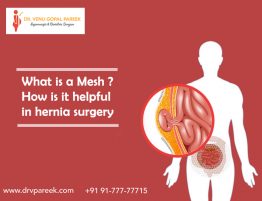
Are you a person who is scared of going to the stools as it brings pain and tears in your eyes after defecation?
Are your bowel movements so painful that you carefully choose what to eat and what not to?
Have you ever noticed an irritating mass from your butt that is so itchy that you want to scratch it until it bleeds?
Well, the diagnosis is quite clear. You are suffering from what is called “Piles”. But you don’t have to worry. Dr Venugopal Pareek is here to solve your problem.
This article will help you to understand piles, their causes, symptoms, and surgery to solve the problem.
What are Haemorrhoids or Piles?

Haemorrhoids, also known as piles, are a medical term used to describe swelling that includes dilated blood vessels around the rectum and anus. Although the exact cause is still unknown, obesity, pregnancy, chronic coughing, heavy lifting, chronic constipation, and prolonged periods of inactivity increase the pressure in the blood vessels and eventually cause them to swell in the anal area.
The complaints are asymptomatic until you start noticing bleeding and mucous discharge. These symptoms become quite severe over a period. Upon progression of the symptoms, you might begin to see lumps coming out of the rectum, itchy sensation, and severe pain and redness around the anus. Painful symptoms can affect daily activities and affect the quality of life and require medical attention.
Types of Piles:

Haemorrhoids are divided into four different categories: internal, prolapse, external, and thrombosis.
- Internal haemorrhoids: They are located deep in the rectum and are not visible to the naked eye. They cannot cause pain, but symptoms of bleeding from the anus mark their presence.
- External haemorrhoids: They form on the outer layer of the anus and cause severe discomfort and pain. Sometimes they are invisible, and sometimes they look like lumps. They can also form blood clots in the mass which slide down.
- Prolapsed: Prolapse haemorrhoids occur when internal haemorrhoids swell and bulge from your anus. The doctor can determine the level of haemorrhoids piles, depending on how far it sticks out:
- Grade 1 haemorrhoids: These are internal haemorrhoids that do not prolapse or bulge outside the anus.
- Grade 2 haemorrhoids: This is internal prolapsed haemorrhoids but then spontaneously return to the anus without intervention
- Grade 3 haemorrhoids: These are internal prolapsed haemorrhoids but only return to the anus when the patient pushes it back.
- Grade 4 haemorrhoids: This is external haemorrhoids that do not return to the anus
- Thrombosed haemorrhoids: A swollen lump around your anus is a blood clot in the hemorrhoidal tissue. Due to lack of blood supply to rectal tissue, thrombotic haemorrhoids must get treated immediately to avoid serious complications.
Causes:

Haemorrhoids can be caused by:
- Stress when defecating
- Constipation
- Sitting longer periods
- Anal infections
- Some diseases, such as liver disease.
Symptoms of haemorrhoids include:
- Bright red blood in toilet paper, stool or toilet bowls
- Anal itching
- Anal pain or pain, especially when sitting
- Pain when defecating
- One or more soft lumps near the anus
Diagnosis:
Physical examination and proctoscopy help to diagnose piles. Colonoscopy can sometimes be recommended if there is a suspicion of large lesions or other pathology in the large intestine.
Treatment Surgery:
Among the various types of medical and surgical interventions available to treat piles, painless stapling with minimally invasive haemorrhoid procedures (MIPH) is very popular.
Indications for surgery:
MIPH surgery is performed on Grade III haemorrhoids and Grade IV haemorrhoids, which can be reduced successfully after an operation.
MIPH Minimally Invasive Procedure For Haemorrhoids:

MIPH stands for “minimally invasive haemorrhoid procedure”, also referred to as “Stapled Hemorrhoidectomy”.
This procedure is considered an alternative to the surgical methods in treating haemorrhoids. In this procedure, bands of protruding mucosal tissue in the rectum, which is adjacent to the centre of the haemorrhoid, are excised. The resultant mucosal tissue left after excision is stapled using ‘end to end mucosal anastomosis’. As a result, the blood supply to the haemorrhoid is cut short, thereby reducing the swelling of the enlarged blood vessels (haemorrhoids).
This type of procedure gets employed in treating third and fourth-degree haemorrhoids. Third-degree haemorrhoids are those who are forced out of rectum when pressure is applied especially when defecating and these haemorrhoids have to be manually pushed back into the rectum. Fourth-degree haemorrhoids are those that forced out of rectum with the application of pressure, and these are hard to push back into the rectum manually.
What happens with MIPH?

During a hemorrhoidectomy, the arteries that move in the hemorrhoidal tissue which enlarge and supply hemorrhoidal vessels are cut. Once they are cut blood flow to the hemorrhoidal vessels reduces, and hence the size of haemorrhoids reduces. During the healing, scar tissue forms around the staples, and it fixes the haemorrhoids in their normal position in the anal canal. Staples are only needed until the tissue has healed. After a few weeks, they fall and are not noticed in the stool. Stapler hemorrhoidectomy is mainly used to treat internal haemorrhoids. However, if there are external haemorrhoids, they can also be reduced.
Before and after surgery instructions:
Instructions before surgery:
- Before surgery, several preoperative examinations are done
- Follow the surgeon’s instructions for the prescribed medication
- You may be asked to stop taking drugs such as aspirin and medicines containing aspirin at least five days before surgery.
- The day before surgery, you are advised to not take food, in any form, after midnight. Drugs, as prescribed, may be taken.
Instructions after surgery:

- You are monitored for 2-4 hours and then taken to the room
- You can drink oral fluids on the same day of surgery
- You can move on your own and visit the toilet on the same day of surgery
- You are usually discharged one day after surgery
- You are advised to come after one week after removing the bandages.
- You should avoid wetting the bandages unless they are waterproof. After removing the dressing, the patient can take a regular shower with soap and water
- You are advised to adhere to healthy eating habits, to use laxatives in the early postoperative period and to do Kegel exercises to strengthen the pelvic muscles.
- In the event of hospital discharge, you receive a summary of the hospital with the recommended medication along with the date of the first follow-up meeting.
Advantages of MIPH:

MIPH offers several advantages over traditional surgical treatments such as minimal pain, minimal blood loss, rapid recovery and reduction in the hospital stay. Patients can return to normal daily activities within a day.
- Minimal postoperative pain
- Shorter hospital stays
- Faster recovery and return to normal activities
- Fewer postoperative complaints
- Excellent results
Conclusion:
This is a minimally invasive procedure that is associated with less pain and manages to relieve pain, bleeding and prolapse associated with haemorrhoids. That can be done as daycare surgery. But, It is essential to enlist the help of an experienced colorectal surgeon to minimize the complications and achieve rapid and painless recovery after staple surgery.
It is a very treatable and common condition, and you don’t need to worry. With proper care and treatment, you will recover in no time.
You can benefit from Dr Venugopal Pareek, experience and trust. He carefully chooses these procedures and the medical treatment you need. The advanced treatment devices are used to offer effective, minimally invasive, safer and least painful treatments. For more details, contact us at 091777 77715 – Consultants at Sunshine Hospital.







